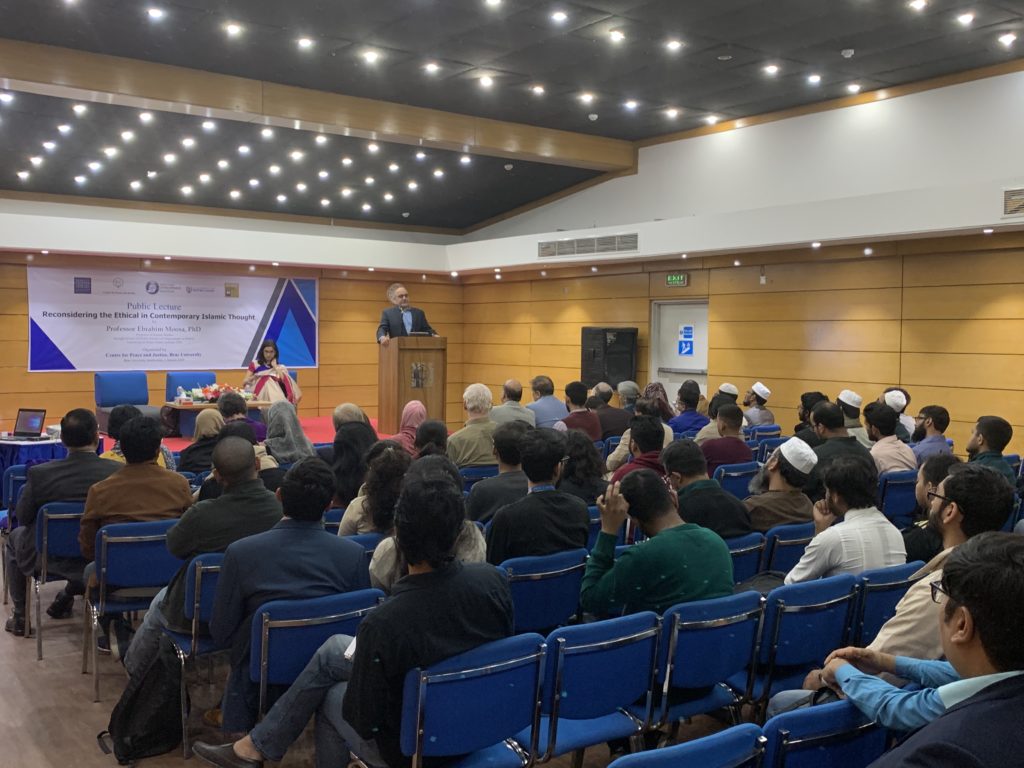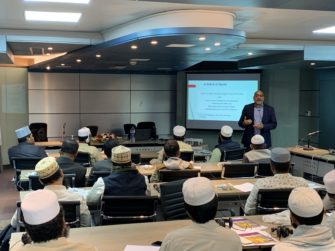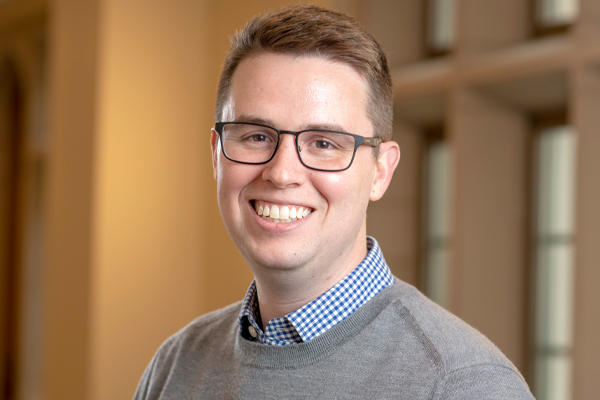
After a successful winter intensive with our most recent batch of first year students, Contending Modernities co-director and Primary Investigator for the Madrasa Discourses program, Dr. Ebrahim Moosa, and I travelled to Dhaka, Bangladesh to lead a two-day workshop introducing local ulama (religious scholars) to the Madrasa Discourses program (MD). There, Professor Moosa also delivered a public lecture, “Rethinking the Ethical in Contemporary Islamic Thought,” as a part of BRAC University and Georgetown University’s co-sponsored lecture series on faith and development. Moosa’s lecture on January 1, 2020 drew a large crowd, many of whom stuck around after the presentation to continue the conversation over tea. In his talk, Professor Moosa argued that contemporary Islamic ethics too often focuses on law at the expense of spheres of life that influence ethics such as philosophy, science, and art. He suggested that a renewed approach to Islamic ethics would expand its horizons beyond law to consider how these areas of thought could also aid Muslims in deliberating over ethical matters.
The two-day workshop kicked off the following morning with introductions from Dr. Katherine Marshall (Senior Fellow at Georgetown University’s Berkley Center) and from Dr. Samia Huq (Associate Professor as the Department of Economics and Social Science, BRAC University) who organized the public lecture and workshop. Following these introductions, I presented to workshop attendees on the history of science and religion. The lecture and discussion focused on a few chapters from Peter Harrison’s book, The Territories of Science and Religion. In the ancient world, I argued, science and philosophy were less concerned with justifying a set of doctrinal beliefs (as they seem often to be now), and more concerned with the formation of the self. Science and religion, in other words, were focused on instilling virtue rather than establishing objective truths about the world. Participants responded by reflecting on the role of personal formation in the Islamic tradition, and questioning whether the relationship between religion and science in the Euro-American context was the same as in the Islamic context of South Asia and the wider Muslim world. In the afternoon, Dr. Rana Dajani (Hashemite University, Jordan) picked up the discussion, introducing students to the theory of evolution and the modern scientific method. The students responded to her presentations with questions that displayed a keen interest in understanding the nuances of the theory of evolution. Throughout the day Professor Moosa tied together the presentations by describing the history and goals of the Madrasa Discourses program and how these related to the curriculum that attendees were sampling in the lectures.

The day’s activities were followed by dinner with local ulama and educational leaders in Bangladesh. The discussion focused on the desire of leaders in the Islamic community to refine and update their educational system. Several attendees expressed a desire to create an integrated system of education, where both secular and religious topics would be taught together. Yet, concerns were also raised that madrasas and other educational organizations lacked the institutional support necessary to make such changes. Professor Moosa responded to these comments by suggesting that it was the ulama’s responsibility to press for such changes, and that while Madrasa Discourses was not a place where society-wide educational reform could be accomplished, it was a place where experimental approaches to different forms of education that engage the relationship between Islamic thought and modern science/philosophy could be taken up. One question Professor Moosa posed to the madrasa and ulama leadership around the dinner table was whether they would be open to exploring an integrated knowledge tradition, one that took seriously the developments in the humanities, the social sciences, and science, in conversation with the historical Muslim disciplines of learning. There was some ambiguity in the reply, if not reluctance, to engage with modern knowledge given its Western provenance. Some around the table mentioned that they found the ideas of Sigmund Freud unacceptable. Professor Moosa explained that while Freud is an important thinker, he does not exhaust the Western canon and that the matter required further discussion and deliberation.
The next morning Professor Moosa introduced to workshop attendees in greater detail the historical approach to engaging the Muslim knowledge tradition that MD had pioneered. He developed some the threads of his public lecture and highlighted some of the challenges involved in “rethinking Islamic ethics.” Here he focused on what scholars of Islam could gain by reading with fresh eyes the writings of important thinkers in Islamic history, such as Al-Ghazali and others. He noted that returning to these thinkers could especially help when it comes to addressing ethical matters such as the dignity of the human person, human rights, the importance of tradition, and practices of interpretation. Following Professor Moosa’s lecture, students broke up into small groups to further discuss ethical issues in contemporary Bangladesh. Topics included the use of milk banks, the Rohingya refugee crisis, the applicability of the humanities and social science for guiding Muslims in everyday moral deliberation, curfews at universities, and divorce.
At the end of the workshop, it was clear that there was enthusiastic interest in both the topics and approach adopted by Madrasa Discourses, the latter of which involves raising questions and asking participants to explore possible solutions to those questions. It was also clear that there were unique challenges as well as possibilities that might come with expanding the existing program to include Bangladesh, most notably in the complex issues facing educational reform in the country. Nonetheless, MD looks forward to the possibility of welcoming a few select students from Bangladesh to its Summer Intensive Program that will be held in Kathmandu in July 2020.


It will be a pleasant experience to have some participants from Bangladesh as they are an active and effective part of Madrassa tradition. It will add to the benefits of the program.